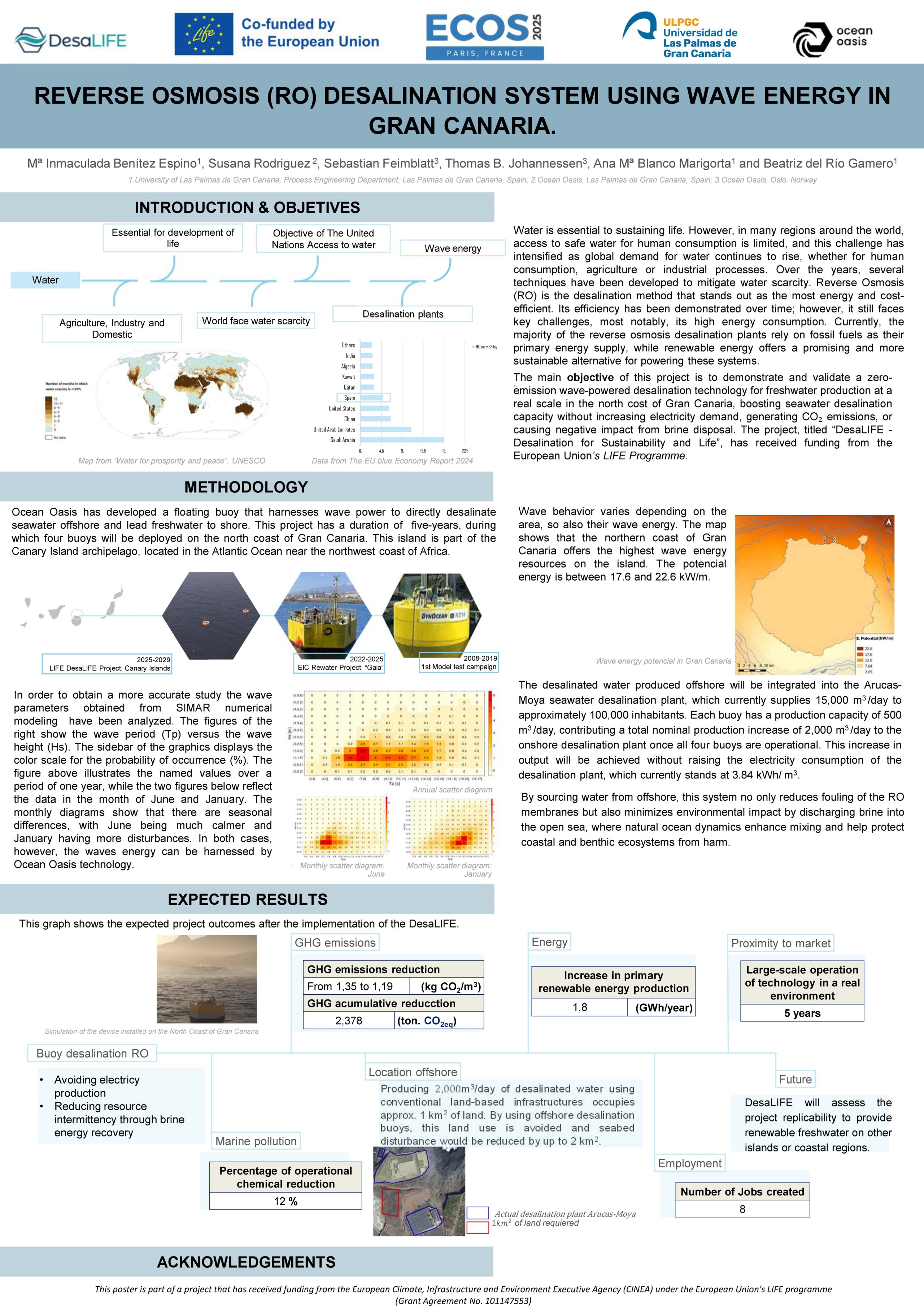DesaLIFE Showcased at ECOS2025
The 38th edition of the International Conference on Efficiency, Cost, Optimization, Simulation, and Environmental Impact of Energy Systems (ECOS) was held in Paris, France, from June 29 to July 4.This annual conference, established in 1985, aims to promote, share, and generate knowledge among engineers, scientists, and policymakers.
The topics covered at ECOS are diverse and include climate change, energy research, and the role of energy in natural resources such as water and air—all with the goal of exchanging perspectives on current and future developments.
Among the papers presented at ECOS2025 were “Energy Analysis of Different Schemes for Humidification-Dehumidification (HDH) Desalination Systems” by P. Ungar, and “A Water Circularity Index for Energy Production Installations” by B. Scalzotto.
Given the relevance of this conference, the project ‘DesaLIFE – Desalination for Sustainability and Life’ was considered an important contribution.
On July 3, two of the six co-authors, Ana Mª Blanco Marigorta and Mª Inmaculada Benítez Espino, presented the project through a poster entitled “Reverse Osmosis Desalination System Using Wave Energy in Gran Canaria”. The objective of the project is to demonstrate and validate a zero-emission wave-powered desalination technology for large-scale freshwater production on the north coast of Gran Canaria.
The project, which aims to increase seawater desalination capacity without raising electricity demand, generating CO₂ emissions, or causing negative impacts from brine discharge, made a strong impression on the ECOS community. Scientists and researchers from various disciplines showed great interest, recognizing the potential of this system to transform the desalination sector.
Authors: Mª Inmaculada Benítez Espino, Susana Rodriguez, Sebastian Feimblatt, Thomas B. Johannessen, Ana Mª Blanco Marigorta and Beatriz del Río Gamero.
This project has received funding from the European Union’s Horizont Europe research and innovation programme under the grant agreement no.190150864

All rights reserved © Ocean Oasis | Legal Notice | Privacy & Cookie Policy
